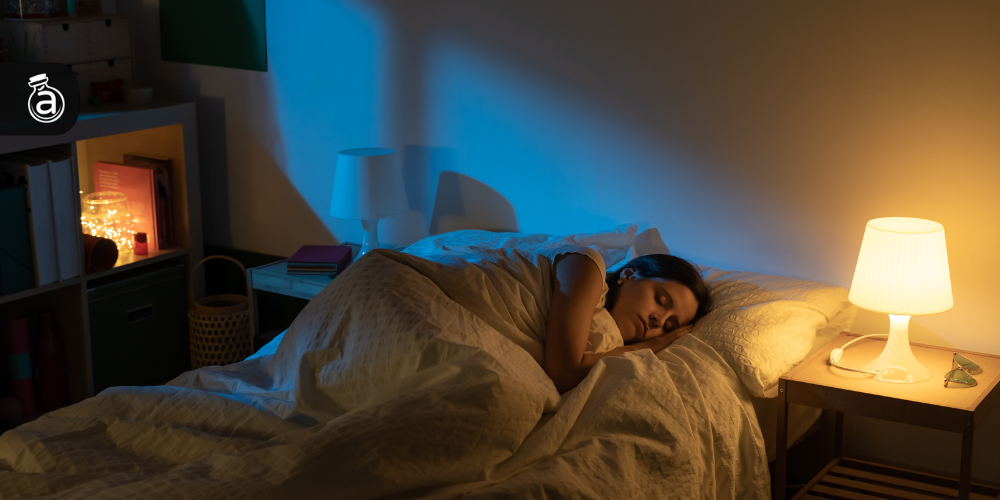Sleep is often undervalued in today's fast-paced society, as productivity and efficiency are highly prioritized. However, the significance of sleep cannot be overstated. It is a fundamental pillar of health and well-being, impacting every aspect of our lives, including physical health, mental clarity, emotional balance, and overall quality of life.
According to Star Malaysia [1], sleep experts advise aiming for a minimum of 7 and a maximum of 8 to 9 hours of sleep each night to meet the ideal number of hours required for our heart's health. However, insomnia, or the inability to fall asleep or stay asleep, is a common problem that millions of people face nowadays. In this article, we delve into the importance of sleep and provide practical tips to combat insomnia and promote restful, rejuvenating sleep.
The Importance of Sleep
Having a Healthy Immune System
Sufficient sleep plays a crucial role in maintaining a robust immune system. Research has demonstrated that inadequate sleep can compromise immune function, rendering individuals more susceptible to illnesses such as the common cold [2] [3]. For instance, in the study, participants who slept fewer than 5 hours per night were 4.5 times more likely to develop a cold compared to those who slept more than 7 hours, while those who slept 5–6 hours were 4.24 times more likely.
Therefore, prioritizing adequate sleep is essential for maintaining physical health and vitality. During sleep, the body engages in vital processes such as tissue repair, hormone synthesis, and immune system reinforcement [4]. Thus, by ensuring sufficient sleep, individuals can support their immune system's ability to defend against infections and promote overall well-being.
Sustaining Optimal Weight
A good night’s sleep is one of the keys to good health and also a key to maintaining a healthy weight. Mounting evidence suggests that individuals who fail to get sufficient sleep are at a heightened risk of weight gain and obesity compared to those who consistently achieve 7-8 hours of sleep per night [5].
Numerous studies have consistently shown a correlation between poor sleep patterns and weight gain, as well as obesity. Researchers [6] have found that individuals who consistently sleep less than seven hours per night are more prone to having a higher body mass index (BMI) and are at an increased risk of developing obesity compared to those who obtain sufficient sleep.
Sleep deprivation can disrupt hormonal balance, leading to elevated levels of ghrelin, also known as the "hunger hormone." This hormonal imbalance can increase appetite and cravings for unhealthy foods, contributing to weight gain. Additionally, inadequate sleep is associated with salt retention and heightened inflammatory markers, further exacerbating the risk of obesity.
Enhancing Emotional Balance
Sleep and emotional well-being are intricately linked. Lack of sleep can exacerbate stress, anxiety, and depression, while restorative sleep promotes emotional resilience and a positive outlook on life. Quality sleep is essential for emotional regulation and maintaining a balanced mood.
There are researchers who were looked into the relationship between sleep quality, duration and emotional intelligence [7].
In the study with 477 participants, individuals were asked to complete questionnaires assessing their sleep habits and emotional intelligence. The findings revealed that those who consistently experienced higher-quality sleep tended to perceive themselves as possessing greater emotional intelligence. This included excelling in social interactions, maintaining healthy relationships, experiencing positive emotions, and effectively managing impulses.
Optimizing Performance and Productivity
According to the NLM Study [8], researchers highlighted that sleep has links to several brain functions, including memory, performance, and cognition.
Memory | Sleep disruption can significantly impact memory processing and formation. |
Performance | Sleep disruption can impair focus, emotional reactivity, decision-making, risk-taking behavior, and judgment, ultimately hindering overall performance in various settings such as work, school, and daily activities. |
Cognition | Sleep disruption can affect cognition by influencing stress hormones and cognitive processes. |
Therefore, whether in the workplace, school, or daily activities, ensuring sufficient sleep is paramount for achieving optimal performance and productivity. Well-rested individuals demonstrate faster reaction times, enhanced decision-making skills, and increased creativity compared to those who are sleep-deprived.
Effective Tips to Help You Sleep Better
Maintain a Consistent Sleep Schedule & a Relaxing Bedtime Routine
Maintaining a consistent sleep schedule can regulate your body's internal clock and promote better sleep quality. Even on weekends, it is important to keep a consistent sleep and wake schedule.
In addition, relaxation techniques such as deep breathing or meditation can be practiced before bedtime, such as reading, listening to soothing music, or engaging in relaxing activities such as reading and listening to soothing music [9]. Alternatively, stay away from stimulants and electronic devices that emit blue light, as they can disrupt sleep.
Optimize Your Sleep Environment
It is important to keep the bedroom dark, quiet, and cool to have a good sleep. Make sure you have a comfortable mattress and pillows that support your alignment. To block out unwanted noise, consider using earplugs or white noise machines.
Eat Correctly and Limit Caffeine & Stimulants
To promote better sleep, it's crucial to manage diet and caffeine intake. Caffeine and stimulants must be avoided in the afternoons and evenings as they can disrupt your sleep patterns. Opt for decaffeinated beverages or herbal teas instead. Also, limit fluid intake before bedtime to reduce nocturnal awakenings.
Sleep Aid Supplements
Sleep supplements also one of the ways to help you sleep better. For example, natural compounds such as melatonin [10] which can aid in improving sleep quality for individuals experiencing insomnia or delayed sleep phase syndrome. Research suggests that melatonin may help individuals fall asleep faster and regulate their sleep-wake cycles. However, it's essential to consult with a healthcare professional before starting any supplement regimen to ensure suitability and safety [11].
In a nutshell, prioritizing quality sleep is essential for overall health and well-being. By understanding the importance of sleep and implementing effective ways to combat insomnia, individuals can enjoy the numerous benefits of restful, rejuvenating sleep. Incorporating healthy sleep habits into your daily routine can lead to improved physical health, mental clarity, emotional resilience, and productivity. Remember, investing in sleep is investing in your health and vitality.
[1]: https://www.thestar.com.my/lifestyle/health/2023/03/10/sleep-well-for-the-sake-of-your-heart
[2]: https://pubmed.ncbi.nlm.nih.gov/30920354/
[3]: https://www.ncbi.nlm.nih.gov/pmc/articles/PMC4685944/
[4]: https://www.ncbi.nlm.nih.gov/books/NBK482512/
[6]: https://www.ncbi.nlm.nih.gov/pmc/articles/PMC6196958/
[7]: https://www.sciencedirect.com/science/article/pii/S2352721821001534
[8]: https://www.ncbi.nlm.nih.gov/pmc/articles/PMC5449130/
[9]: https://esyms.com/general-health/improve-sleep
[10]: https://www.getmana.shop/collections/feature-on-homepage/products/mana-sleep



